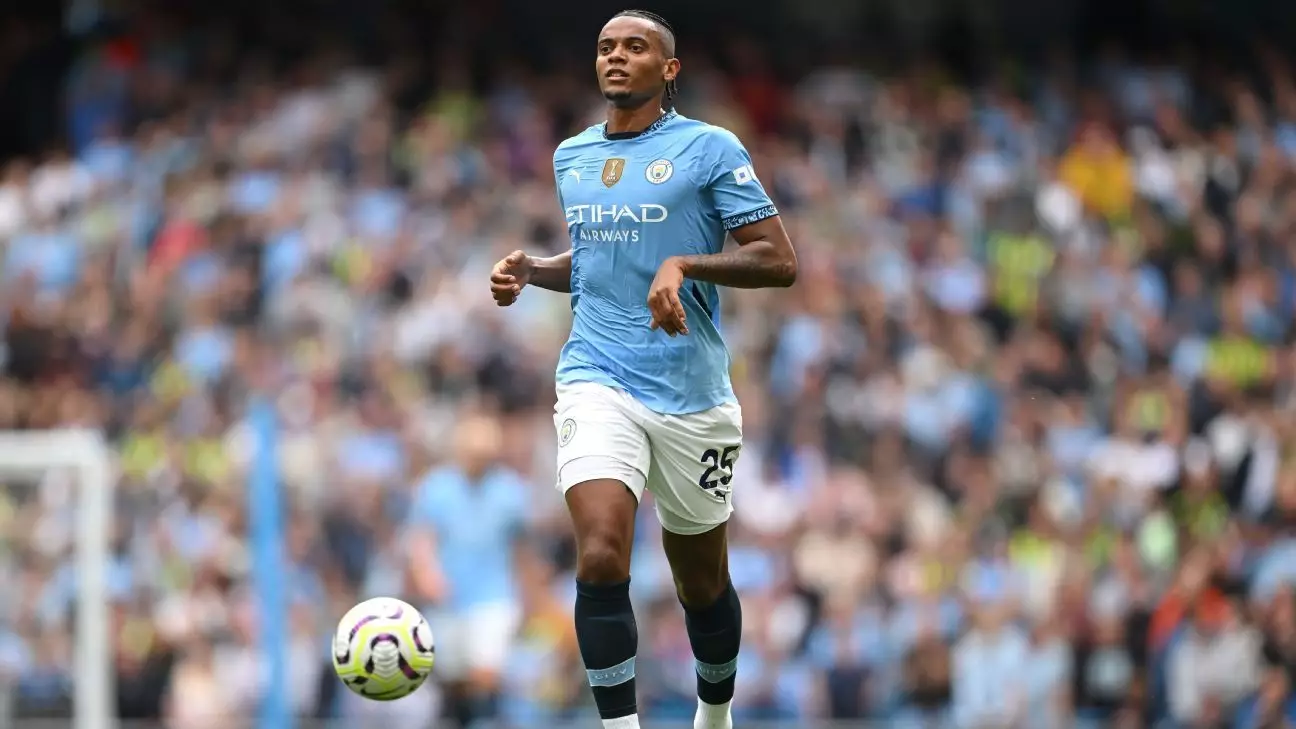The relentless schedule of modern football is drawing attention from players and officials alike, and one voice in the dialogue is Manchester City’s own Manuel Akanji. The Swiss international candidly expressed his anxiety about the increasing frequency of matches and the toll it takes on players’ well-being. At just 29 years old, Akanji, humorously suggested that retirement might be an appealing option by the time he reaches 30, exposing the stark reality of his profession—extreme competition coupled with minimal downtime.
Football, particularly on the elite level, has transformed into a grueling marathon of matches. In a single season, players can find themselves participating in numerous domestic and international competitions, leaving little room for recovery and personal time. For Akanji, the cycle begins anew as he transitions from the Euro 2024 with Switzerland, where his last game was on July 6, right into the Community Shield on August 10. With a busy calendar that includes an expanded Champions League format, players are left grappling with the reality of a packed fixture list that seems to be expanding exponentially.
Rest—A Commodity of the Past?
Akanji highlights another critical issue: the diminishing opportunities for rest in a sport that is increasingly unforgiving. With no respite in the winter months and limited holiday breaks, the prospect of physical and mental fatigue looms large. As players are inundated with back-to-back games, the risk of injuries escalates, compelling an urgent conversation around player health and the sustainability of such rigorous schedules.
Historically, top athletes like Akanji have managed their physical conditions meticulously, partaking in a regime designed to keep them in peak form. However, the introduction of more matches creates an unsustainable cycle that questions the long-term viability of this approach. As Akanji succinctly put it, “At some point, you’ll be too tired to play any more games.” This sentiment echoes broader concerns within the football community that players are approached not as human beings but as resources to be exploited.
A Collective Call for Change
The frustration expressed by Akanji is echoed throughout the football landscape and is not just a solitary complaint; it resonates with the sentiments of many professionals. Organizations such as FIFPRO—the global representative for professional football players—have taken action, filing legal claims against FIFA regarding the organizational authority over the football calendar. Their challenge aims to address the perceived inadequacies that manifest in players’ physical and mental health due to excessive match demands.
In an era of commercialism where financial motivations often overshadow the welfare of players, Akanji’s thoughts shine a necessary light on the issue. The balance between entertainment and athlete well-being is precariously poised. As discussions evolve, it becomes critical to forge a future in football that sustains the sport without compromising those who play it. There must be an exchange between the governing bodies and players, ensuring that the game remains both entertaining and sustainable.
The path ahead requires systemic changes. If elite football is to thrive without risking the health of its greatest assets—the players—it is imperative for decision-makers to listen closely to the voices articulating these concerns. The longevity of athletes’ careers hangs in the balance, and the football community must act decisively to reshape the future of the sport.

Leave a Reply